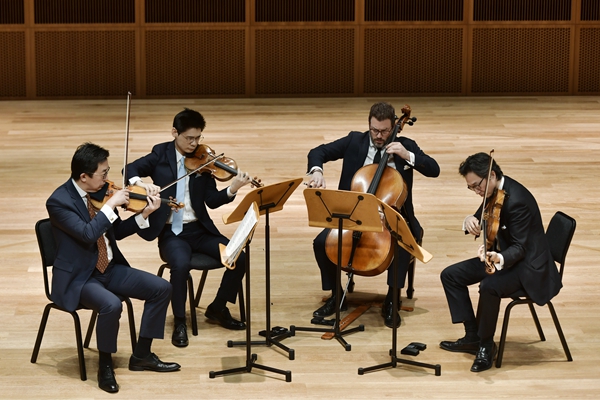

Li began playing the violin when he was 5 and went on to attend the Shanghai Conservatory Middle School when he was 14, in 1979. Three years later he was selected through the first cultural exchange program between Shanghai and San Francisco to study for one year at the San Francisco Conservatory of Music.
"With economic development and the rise of the middle class in China, many new concert halls have sprung up and many children study classical music, which has made China an exciting country for classical music," he says.
On the growing availability of chamber music, he says: "I think the diversity allows us to be able to engage new audiences, which is really important for the future of classical music."
Last Dec 16 the Shanghai Quartet gave its first recital after the violinist Angelo Xiang Yu joined the quartet at the Tianjin Juilliard School. It was also the quartet's first recital after the pandemic set in.
Yu says he started playing chamber music when he was 13.
"I was studying at the Shanghai Conservatory of Music middle school. There were only two chamber groups in the entire school. It was clear that most students eventually wanted to be a soloist, and chamber music was regarded as being for the less talented. That notion really saddened me, because I believe chamber music is the foundation of musical studies."
Yu, who was born in Inner Mongolia autonomous region in 1988, won first prize in the Yehudi Menuhin International Violin Competition for Young Artists in Oslo in 2010.
He met his first chamber music coach, Song Yang, in 2001, a first for both of them: Yu's first year of chamber music study and Song's first year as a chamber music coach.
"We did a lot of experimentation in terms of repertoire and skill training, trying different approaches and styles," Yu says.